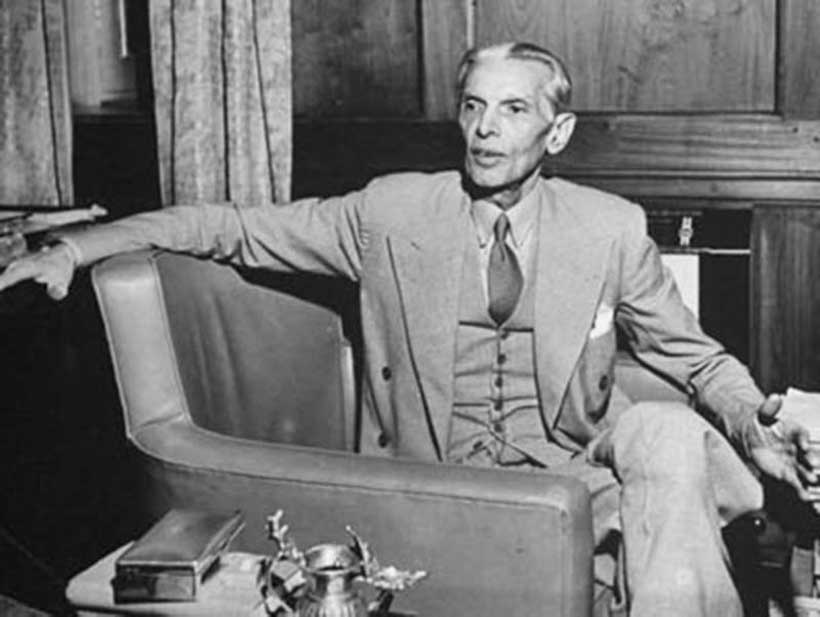
Dr. Muhammad Shahzad Ashfaq
Quaid-e-Azam Muhammad Ali Jinnah, the founding father of Pakistan, left behind a remarkable legacy that continues to shape the nation to this day. As a visionary leader, he played a pivotal role in the creation of Pakistan, securing a separate homeland for Muslims in the Indian subcontinent. His unwavering dedication to the cause of independence and his steadfast leadership inspired millions to strive for a better future.
Quaid-e-Azam, also known as Muhammad Ali Jinnah, is hailed as the founding father of Pakistan. Quaid-e-Azam’s vision for Pakistan was rooted in the idea of a homeland where Muslims could practice their faith freely and live in harmony. His leadership during the unrestrained period leading up to the partition of India in 1947 was characterized by his steadfast resolve and diplomatic insight. Through negotiations with the British colonial rulers and the Indian National Congress, Quaid-e-Azam navigated complex political waters to secure a separate nation for the Muslims of the region.
Jinnah’s vision for Pakistan was not limited to mere independence; he envisioned a state that would be a beacon of hope for the oppressed and marginalized communities around the world. He believed in the principles of democracy, secularism, and social justice, which he saw as essential for the progress and prosperity of the nation. His famous 11th August speech, in which he emphasized the importance of religious freedom, equality, and tolerance, continues to be cited as a guiding principle for the nation. The Quaid’s vision has inspired generations of Pakistanis to strive for a more just and equitable society, where every citizen has equal opportunities to succeed and contribute to the nation’s progress.
The values that Jinnah embodied, such as honesty, integrity, and simplicity, continue to be celebrated and emulated by the Pakistani people. His simplicity and humility, despite his immense power and influence, are a testament to his strong moral character and his commitment to serving the people. The Quaid’s emphasis on education, hard work, and self-reliance has instilled a strong work ethic in the Pakistani people, driving them to strive for excellence and innovation in various fields. His commitment to the welfare of the common man, particularly the poor and the marginalized, has inspired a culture of social responsibility and philanthropy in Pakistan.
Jinnah’s legacy has played a significant role in shaping Pakistan’s foreign policy and international relations. His commitment to non-alignment and neutrality during the Cold War era earned Pakistan a reputation as a champion of independence and sovereignty. The Quaid’s vision of a united and strong Muslim world, which he articulated through his leadership of the Muslim League, continues to inspire Pakistan’s engagement with the global Muslim community. His emphasis on regional cooperation and diplomacy has facilitated Pakistan’s participation in regional organizations, such as the South Asian Association for Regional Cooperation (SAARC), and has helped to promote peace and stability in the region.
One of the key aspects of Quaid-e-Azam’s legacy is his unwavering commitment to upholding democratic values and principles. He believed in a Pakistan where every citizen, regardless of their background, would have equal rights and opportunities. Quaid-e-Azam’s dedication to inclusivity and tolerance serves as a guiding light for modern-day Pakistan, reminding its people of the importance of respecting diversity and fostering a culture of acceptance.
Quaid-e-Azam was a staunch advocate for social justice and economic empowerment. He envisioned a Pakistan where every citizen would have access to basic necessities, freedom of speech and employment opportunities. His emphasis on social welfare programs and initiatives aimed at uplifting the marginalized segments of society. Muhammad Ali Jinnah highlights his commitments to creating a more equitable and prosperous nation.
Quaid-e-Azam’s legacy is characterized by his unwavering commitment to the principles of democracy, equality, and justice. He believed in the power of unity and diversity, advocating for the rights of all citizens regardless of their religion, caste, or creed. His vision for Pakistan was one of a modern, progressive nation, where all individuals could live in peace and harmony.
In today’s fast- paced world, where the challenges facing Pakistan are multifaceted and complex, honoring the legacy of Quaid-e-Azam becomes even more crucial. Reflecting on his teachings and principles, Pakistanis can draw inspiration and guidance on how to address contemporary issues such as poverty, corruption, and political instability. Quaid-e-Azam’s legacy is a reminder of the importance of integrity, leadership, and nation-building, values that are essential for the progress and development of Pakistan.
His commitment to education led to the establishment of numerous educational institutions across the country, providing opportunities for young Pakistanis to excel and contribute to the nation’s development. The legacy of Quaid-e-Azam Muhammad Ali Jinnah is one of courage, integrity, and vision. His leadership continues to inspire generations of Pakistanis to work towards a brighter future for their country. As we reflect on his remarkable achievements, we are reminded of the importance of upholding the values of democracy, equality, and education that he held. Quaid-e-Azam’s legacy will forever be cherished and honored as a beacon of hope for the nation.
Quaid-e-Azam’s legacy continues to resonate deeply with the people of Pakistan. His leadership, vision, and values have left an indelible mark on the nation’s history and continue to inspire generations of Pakistanis. Honoring the legacy of Quaid-e-Azam, Pakistan not only pays tribute to its founding father but also reaffirms its commitment to the ideals of unity, faith, and discipline. Quaid-e- Azam’s enduring legacy serves as a beacon of hope and guidance for Pakistan, guiding its people towards a brighter and more prosperous future. As Pakistan continues to navigate the challenges of the 21st century, the Quaid’s legacy serves as a guiding light, reminding the nation of its founding principles and values. It is up to the current and future generations of Pakistanis to continue to draw inspiration from Jinnah’s legacy, working towards a brighter future for themselves and their country.
Writer is Post-Doctorate (Peace Education),International Islamic University, Islamabad





